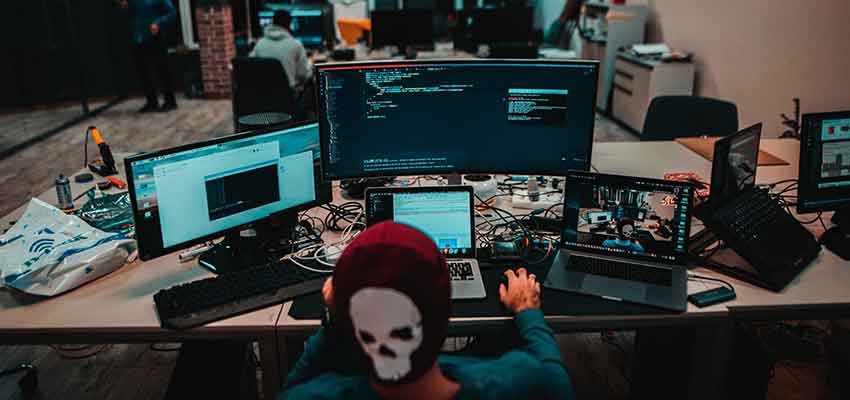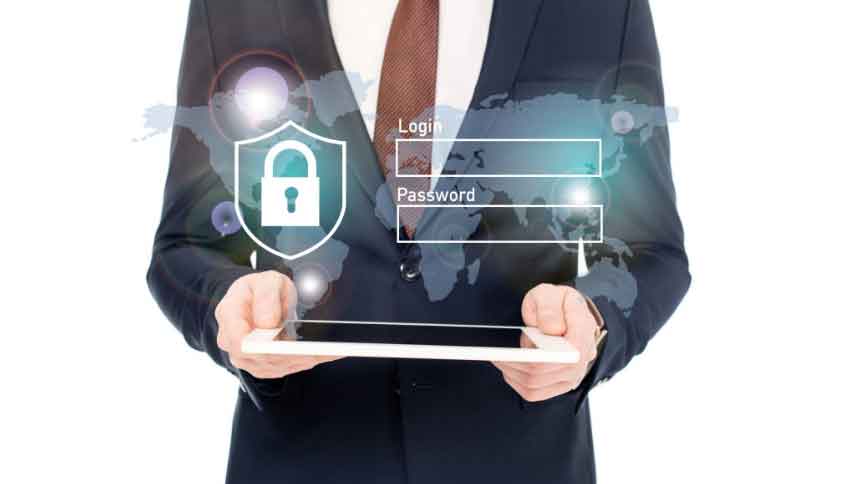Show:
Key Ways to Better Protect Yourself While Online
With everything happening online these days, it is easy to accidentally give information to the wrong website or let some information slide you usually would’ve been more protective over. However, with everything we are using online, from shopping, online courses to paying for medical appointments, your risk for falling victim to raudulent activity can be high. Hackers are lurking now more than ever, knowing how much we all depend on online services in our daily lives.

Luckily, there are the basic things that you can do, such as change your passwords often and forgo opening dangerous links. You can also continuously back up your material online and to protect your websites or other information online. However, you are still at risk. With the rise in hacking and the vulnerability of personal information being tossed around on the internet, there are even more precautions that you should take every time that you get online.
How To Stay Protected
When it comes to staying as protected as you can, there are some key steps to follow to keep yourself from getting hacked or from your identity stolen. You can follow these tips to keep yourself protected while online:
1. Watch Your Emails
One of the easiest ways for hackers to get into your computer is whenever you open an email or a link from a stranger. If you receive a message that seems off or an email from a stranger with an attachment or a link, don’t open it. This can be how viruses are sent to your computer and can infect your entire system if it is a malicious link.
These types of malware are commonly opened by people when they check their email and can cause many issues as they can infect their entire home system. Even if you get an email that you open but don’t open the download, you can still infect your computer.
You can also choose to get an email service that monitors these types of emails and can move them to a spam folder automatically for you. But even if you have Gmail or another email service that looks out for these things, then you’ll still want to be cautious of what you choose to open.
2. Keep Your Automatic Updates On
You need to ensure that all of your devices are updating automatically so that any security updates are added to your phone or your computer as soon as they are released.
If you are using security software, then make sure that this is also updated automatically as well. There is no point in having antivirus software installed and then not updating it regularly. New threats pop up every second.
3. Get A VPN
When you use a VPN, then you can protect your information anywhere that you go. A VPN stands for a virtual private network and can be used to keep your information safe when browsing on a public wifi system or somewhere that isn’t your home network.
The pros at Wired Titan recommend using a VPN to encrypt the data that you send. This is a method that will keep your information protected, especially when you are using public spaces.
When data is encrypted, hackers have a much harder time trying to intercept this data, making it much harder to steal your information.
4. Change Passwords
Of course, you need to change your passwords often. You also need to make sure that you don’t use the same password for everything. Another thing to keep in mind is that you want to use very strong passwords to be sure that no one can hack into them or easily guess your password.

Don’t make your passwords off of your pet’s name or your children’s birthdays. You need to create unique and new passwords often. Luckily, you can store these in your passwords on your computer or your phone if you need help remembering them all.
5. Never Click On Strange Links
Even when you are browsing online, you are susceptible to malware and your information intercepted and stolen. You want to be more aware of everything that you choose to do online.
You’ll also want to avoid clicking on strange links that are web pages that you are browsing. If someone you know sent you a link via email, Facebook Messenger, or through another route, then this also may be malicious.
This doesn’t mean that the person sending the information was malicious, but their information could’ve been hacked. If you see these types of links, you want to be sure that you don’t click on them.
6. Be Smart
Another way to protect your information is to be smart about who and where you are sharing it. This is a way that can include anywhere that you want to enter your credit card information to purchase something online or to sign up for a service.
You want only to enter your information on sites that start with https:// as this ensures that the connection is actually encrypted. You’ll want to be sure that the ‘s’ part of https is there as that is the component that guarantees it is encrypted. This is something that you will always want to watch out for, and make sure that you never enter your credit card information or other personal information into a non-encrypted site. This can be very dangerous for your financial information.
As you can see, there are several things to watch out for when it comes to keeping your information private and ensuring that you keep your identity safe while scrolling online. Following these simple steps can significantly reduce your risk for online fraud or for adding malware to your computer. You will want to be sure that you can take all of the precautions possible to ensure that your information is safe and secure. You can also help others that you know by educating them and helping them understand ways to keep their information safe and secure. This will also help your friends and family reduce their risk of accepting malware or having their private information hacked.

 Return to Previous Page
Return to Previous Page








